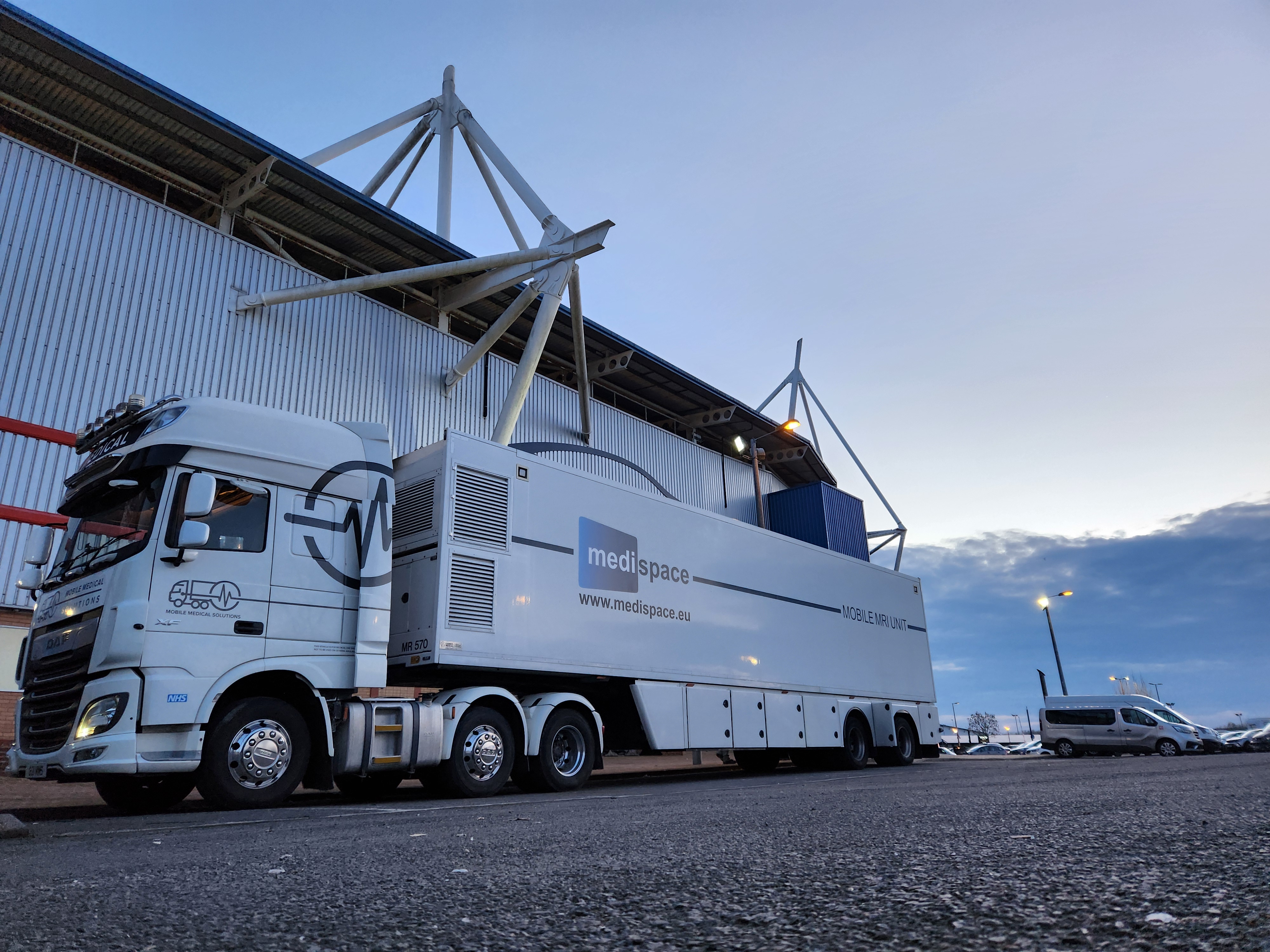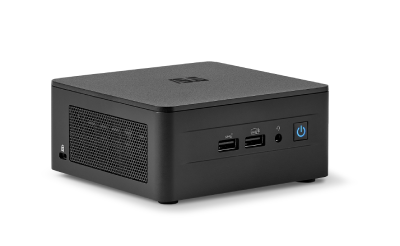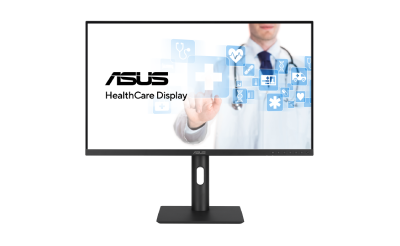
Making medical scanning services accessible everywhere
Medeikon, powered by ASUS NUC Mini PC

Medical scanning trucks provide an invaluable service, bringing additional, temporary scanning services to hospitals, medical centers, and communities on an ad-hoc or regular schedule. However, they face a challenge: a specialist engineer is needed to configure and connect the devices to each hospital’s network every time the truck arrives. Organising this costs the hospitals valuable time and delays patient care. A reliable solution was needed to overcome this challenge, providing an automated method to transfer large image files between scanning truck and hospital.
In conjunction with this was a requirement to provide centralised, remote monitoring of complex scanning procedures to help make more effective use of senior radiologists’ time and increase scan capacity. In addition, the scanning truck providers were also keen to be able to remotely monitor their trucks allowing them to pre-empt problems with the scanning equipment and avoid costly repairs and loss of scanning services.
Medeikon set to work to create solutions to these challenges alongside Edge computing experts iCubes, using ASUS NUC Mini PC computers and ASUS Healthcare Monitors.
Pop-up scanning services: an inspired solution to a critical challenge
Meeting scanning demands is a significant burden facing hospitals and medical centres everywhere. Stefan Claesen, co-founder and CTO of Medeikon said: “Many sites may only have one MRI and/or CT scanner installed, and with the machines costing upwards of £1 million, purchasing additional units often simply isn’t an option.”
The scanners that hospitals do have onsite need regular servicing and repair, which can see them out of action altogether for a period. Some smaller hospital sites simply don’t have space or budget for these types of scanners. All the while, waiting lists are growing, and demand for urgent diagnostic care is not expected to decline.
 Temporary ‘scanning trucks’ provide a pivotal solution. Equipped with medical imaging devices, namely CT and MRI machines, they deliver additional scanning services to hospitals and communities across the NHS and private sector to increase capacity. The trucks can even be situated out in the community – a supermarket car park as one example – to provide in-community scanning services where required. Helping hospitals to shorten waiting lists and make urgent diagnostic care more accessible to those who need it the most.
Temporary ‘scanning trucks’ provide a pivotal solution. Equipped with medical imaging devices, namely CT and MRI machines, they deliver additional scanning services to hospitals and communities across the NHS and private sector to increase capacity. The trucks can even be situated out in the community – a supermarket car park as one example – to provide in-community scanning services where required. Helping hospitals to shorten waiting lists and make urgent diagnostic care more accessible to those who need it the most.
Claesen said: “These scanning trucks can serve a hospital for, say, two days a week, and then move on to the next location. This is vital for helping to reduce waiting lists or perhaps provide a backup scanning service while a hospital’s onsite machines are being serviced, for example.”
But this approach comes with its challenges.
Claesen explains: “Scanners aren’t designed or built to be used on trucks. They require connection and configuration for every new site – but this requires a specialist engineer, and the process can take up to a day to complete. This would be fine for a permanent scanner; but for one that is moving to a new site every few days, it just isn’t sustainable. You’re also dependent on the availability of those engineers – which isn’t always easy when we consider some of the more remote locations the trucks might be needed in.”
Switch on and scan: the new approach empowering healthcare providers
This is where Medeikon comes in. Together with Edge computing expert iCubes, the team has built a powerful solution to complex mobile scanning requirements. “We’ve created a software program that enables scanning trucks to automatically connect and configure to each different hospital they arrive at. The software, which is loaded onto Intel-powered ASUS NUC 13 Pro Mini PCs, makes the configurations for any hospital available to any truck. The software connects through GPS, so as soon as a truck arrives at a recognized location, the scanning device automatically configures and connects to that hospital’s network in just a few minutes. There’s no need for a specialist engineer; the radiographer just needs to switch on the machine and go.” said Claesen.
 “A typical CT or MRI machine can do 30-40 scans a day – or as many as 60 on a screening day. So, one day’s downtime comes at a huge cost.” – Claesen.
“A typical CT or MRI machine can do 30-40 scans a day – or as many as 60 on a screening day. So, one day’s downtime comes at a huge cost.” – Claesen.
Each ASUS NUC 13 Pro is fully customisable and powered by 13th Generation Intel® Core™ i7-1370P processors, with 14 processor cores (6P+8E), 20 threads, 24MB Intel® Smart Cache and 35W TDP for reliable, powerful performance. Each unit communicates over IoT back to a central database where all hospital configurations are stored. This means any truck can talk to any hospital; images can even be sent over 5G networks when trucks are situated away from a medical site and cannot connect with a medical network.
NUC: delivering resiliency and reliability where it’s needed most
Encrypting and compressing the huge volumes of scanning images requires significant processing power. But Medeikon also needed something dependable; 5G can drop, hospital systems can go down, cables can fail, and so on. The ASUS NUCs can cache and retain studies for 30 days, providing a dependable failsafe. If a scan doesn’t arrive or there’s missing or incorrect information with the images, those images are saved and so can be resent for a short period. This avoids the need to recall patients for repeat scans and, in the case of CT, additional radiation exposure.
The ASUS NUCs also come with the option of a dual LAN expansion pack. Claesen said: “Because of the way our system works – needing to reconfigure for every new location – having two networks strengthens our resilience. One network always stays the same and talks to the scanner on the truck, while the second network is the one that talks to the hospital. Having a separate network means we can also separate the truck from the hospital network – helping to keep patient data secure and minimizing the disruption from potential cyber-attacks.
Small form factor for a truly mobile solution
 “Scanning images produce a serious volume of data too; with the NUCs, we get 2TB of storage per device – with that capacity we only need one device per truck.” – Claesen.
“Scanning images produce a serious volume of data too; with the NUCs, we get 2TB of storage per device – with that capacity we only need one device per truck.” – Claesen.
Space is an issue on the trucks when you factor in the size of a scanner; the radiographers need space to work, and they also require a desk to work at. There’s no room for a big IT rack. The NUCs, which can be tucked away discreetly, and fitted to the underside of a desk, provide the ideal solution. Radiographers barely even notice they’re there as they don’t take up any room.
Enabling more effective use of skilled resource
Medeikon is extending its partnership with ASUS to deploy its Healthcare Monitors to make remote radiography a reality.
Claesen said: “Complex scans require senior radiographers. By providing a replica of the scanner console, these highly skilled radiographers can monitor and review scan images remotely. This means more junior radiographers can carry out routine scans, with senior radiographers connecting to support remotely on those complex cases. Helping to reduce delays and improve utilization of senior radiographers. The ASUS Healthcare Monitors are critical in providing the clarity of image needed for reviewing such scans remotely and are revolutionary for the future of healthcare scanning.”
The ASUS Healthcare Monitors provide wide-angle viewing, anti-glare, and low reflection with Eye Care+ to deliver a perfect quality picture and protect eyes from long-time use. An accurate picture ensures that radiographers can review scan images with complete clarity, and antibacterial treatments protect against microbial growth, making them safe for use in healthcare environments.
The power to meet demand head-on
“Currently, we have an install of 50-60 trucks, and we’re already looking to grow this to 200. The units have been incredibly reliable, and are serving hospitals across Europe, from the UK to Germany, Spain and Italy, and beyond. The reliability, size, and power of the ASUS NUCs have been pivotal in freeing the potential of mobile scanning trucks and dramatically increasing accessibility to this service. Gone are the days of loading thousands of scanned images onto a CD at the end of each day and walking them across a car park into the hospital.
“The service we provide is constantly evolving; we have units deployed to support the NHS’s Targeted Lung Health Check programme (THLC) and also support breast screening programmes.” Continued Claesen.
Powering access to life-changing screening services
To find out more about the powerful combination of solutions powering accessibility to scanning services, you can learn more in the links below.

Discover the power of ASUS NUC 13 Pro Mini PC here.

Find out all the benefits of ASUS Healthcare Monitors here.
Visit iCubes, the Edge computing expert and systems integrator technology firm here.
